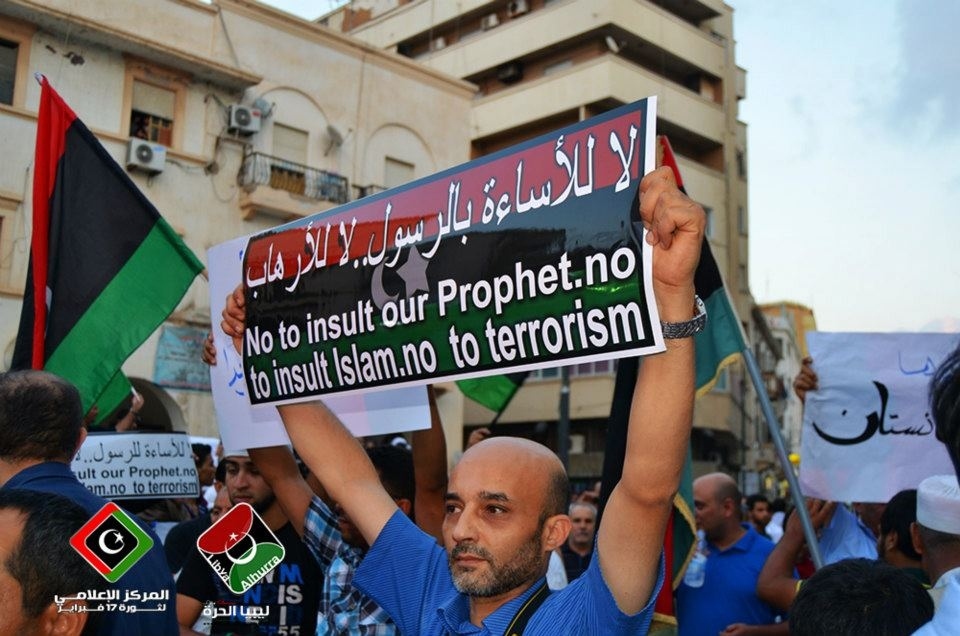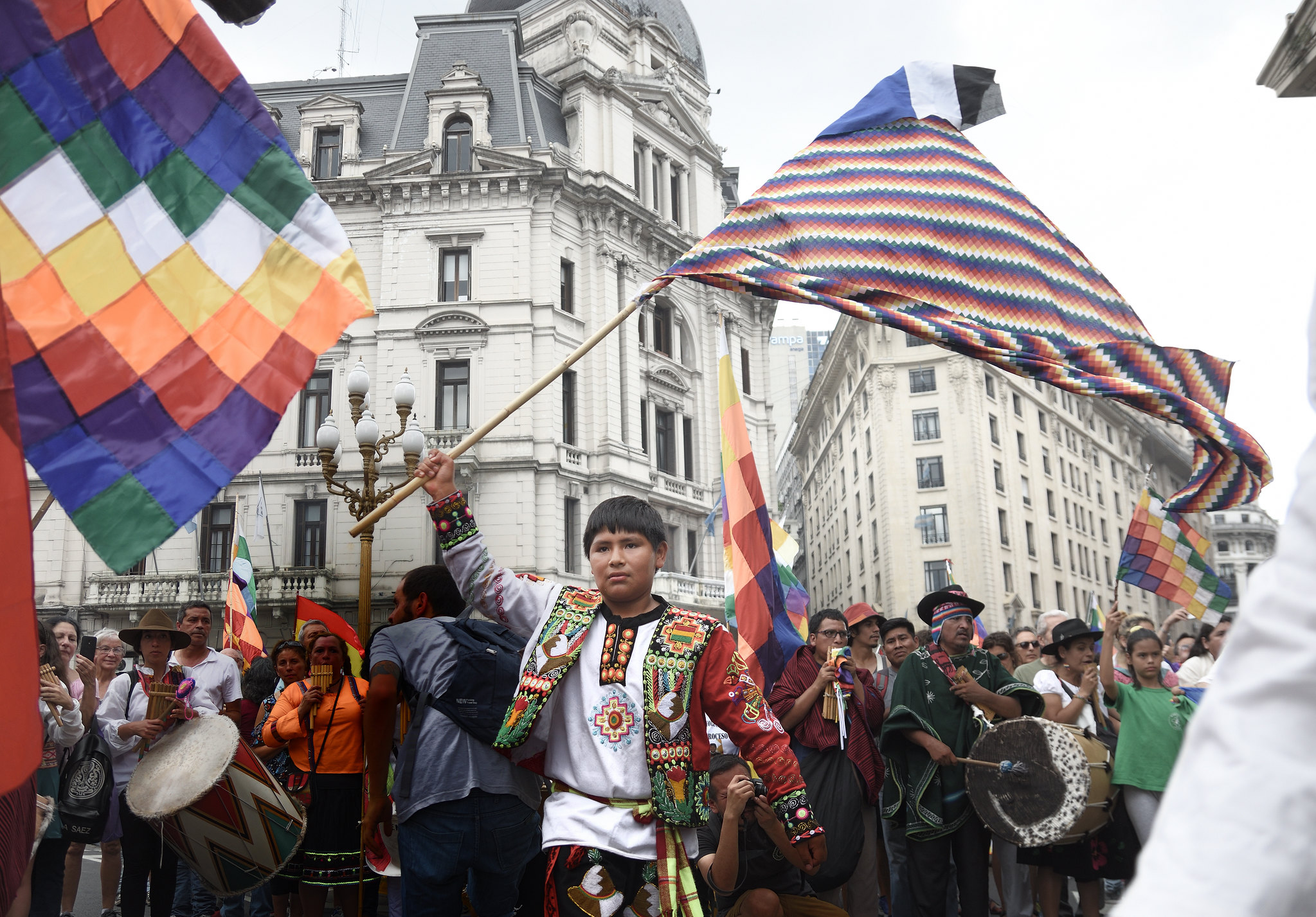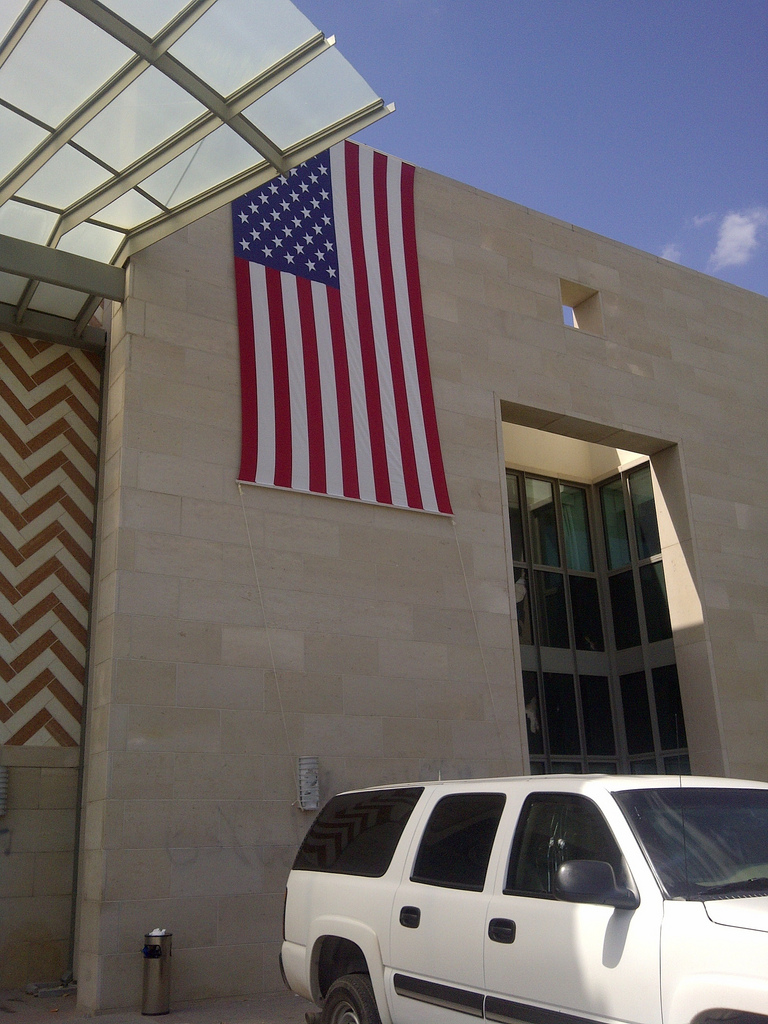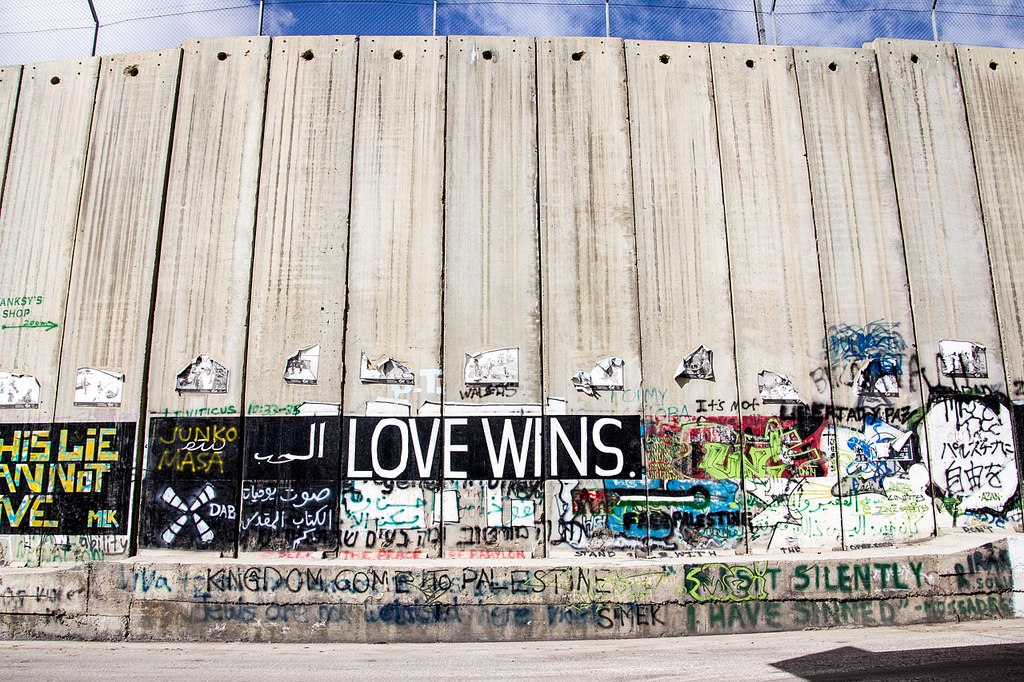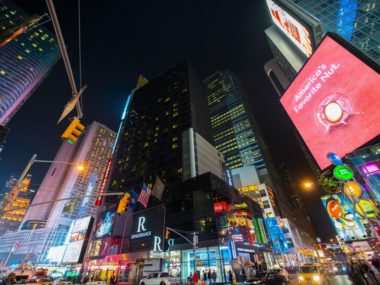Guest post by Lindsay Heger and Roberta Spivak

When they released their short “film”, the filmmakers behind “The Innocence of Muslims” scored a victory not only for themselves, but also their purported enemy. For extremists, this year’s September 11 anniversary was a win-win — Americans produced a film so poorly crafted that it would be viewed in America as a joke, but one that would also serve to incite Muslim extremists abroad. The tragic events that unfolded highlight how the most intolerant segments of two societies — those who at least rhetorically consider themselves enemies — can in essence further their goals through a brief series of interactions. By provoking a violent response to their film, the American producers could “prove” their point that Islam is a violent religion, and by the same token extremists in Libya, Egypt, and Yemen could show their followers that Americans really are as hateful as some clerics profess.
Extremists gain power by manipulating moderates’ perceptions about the righteousness of their cause. This strategy is more likely to work when the actions of the other side give the moderates real reasons to believe the extremists’ narrative. In the wake of recent events, we should ask ourselves what can be done to legitimize the perception that extremists on both sides are wrong. Can ordinary Americans realize that the majority of Libyans are equally aghast at the murder of the four innocent embassy staff as we are? Can we convince Muslims throughout the world that America is not a homogeneous society coalescing around anti-Muslim sentiment? Where are the gatekeepers? Who is responsible to protect the normal, average citizen from this attempt to bias them?
One obvious option is government officials. But on both sides government officials have been unable to correct these rampant misperceptions. Following the murders of American diplomats in Libya, President Obama, British Prime Minister David Cameron, Libyan interim President Mohammed el-Megarif, and NATO Secretary-General Anders Fogh Rasmussen all expressed sympathy for those hurt by the killings and pleaded for nonviolent responses to the film. Yet, in the days that followed violent protests quickly spread across borders. Initial pleas for peace proved ineffective. One reason for this lies in the fact the message, as received by many Muslims living with state-controlled media, was mixed — the film and recent publication of anti-Islamic cartoons in France sent a message of hate and disrespect. Calls for peace, thus, could easily be perceived as a mixed message.
Another possibility lies in the fact that many leaders in the Muslim world stoked the flames of rage. Initially the loudest voices from Afghanistan, Pakistan, and Palestine all vehemently condemned the film, yet remained largely silent on the issue of the murderous reprisal in Benghazi. In Iran Ayatollah Ahmad Khatami went so far as to urge his supporters to turn their holy rage into a “hurricane or a tsunami against the US” and make America “pay a steep price” for the film. Pakistani Railway Minister Ghulam Ahmad Bilour offered $100,000 reward for the killing of the film’s makers.
For Westerners, these calls to arms and the perception relative ambivalence in the Muslim world about bringing the killers in Benghazi to justice cements some Americans’ negative perceptions Islam. Unfortunately evidence suggests these perceptions may be pervasive. In a survey by the Public Religion Research Institute and the Brookings Institution in 2011, nearly half of Americans believe that Islam is “at odds with American values and way of life”. More troubling is the finding that while more than 80 percent of Americans view the perpetrators of violence in the name of Christianity as non-Christians, only 48 percent of Americans attribute violence in the name of Islam to non-Muslims. The last week has probably only increased American Islamophobia.
But Americans themselves have done little to correct the vision that America is at war with the Muslim world. Utter disgust with the film among Americans, while widespread, may not be enough. Because the American legal system protects the right to freedom of (even at times repugnant) expression, legal options to prosecute or criminalize the film’s makers are largely non-existent (as they probably should be).
It is time to start considering how actors other than just government officials can stop this spiral of misperception. Government officials have failed to communicate the true state of moderate public opinion on both sides, but some civilian organizations and other non-state actors have diligently worked to communicate with the other side. The day after American diplomats were murdered in Libya, buried behind the pictures of American flags on fire and protestors destroying Western embassies, images surfaced of peaceful Libyan demonstrators holding signs indicating empathy towards America’s loss. One sign (corrected for spelling) read, “Sorry People of America, This [is] Not The Behavior of Islam or the Prophet.” These protesters’ message should not be buried. It should be front page material; these protestors have enormous potential to demonstrate that moderation and empathy exists between the Muslims and the West. On the same token signals of American moderation are also probably necessary to curtail the spiral fueled by extremists. Given the “The Innocence of Muslims” laughable quality and American perceptions of its obviously extreme message, it may not occur to Americans to voice opposition. But a demonstration of American disgust with the film cuts against Islamic extremists’ accounts and could provide strong evidence that Americans, like many Muslims, find the current spiral downward distressing. To this end, we are cautiously optimistic about recent events. Efforts in Pakistan to show anti-film advertising on TV and massive protests calling for militias in Libya to disarm seem like promising steps toward ensuring average citizens’ perceptions do not tend further toward the extremes. In reality, however, it is likely that more sustained signals of moderation on both sides will be necessary to bring the current spiral to an end.

